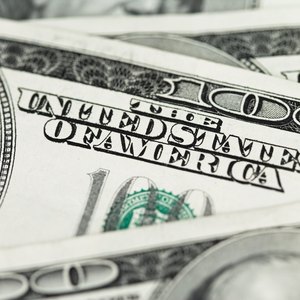
New Jersey residents may be subject to a civil lawsuit for failing to repay a debt. State law permits creditors to collect a judgment by garnishing the debtor's wages, freezing his bank accounts or seizing personal property. Title 2 of the New Jersey Code provides for the exemption of certain assets from seizure, including individual retirement accounts (IRAs). If you're being sued by a creditor in New Jersey, learn how to protect your retirement savings.
Exempt Contributions
New Jersey residents may exempt 100 percent of their contributions to a qualified IRA plan, including a traditional IRA, Roth IRA, SIMPLE IRA or SEP IRA. This protection applies if a creditor is seeking to enforce a civil judgment as well as to the assets included in a bankruptcy estate. As of 2011, New Jersey debtors who file bankruptcy may exempt a maximum of $1,171,650 in traditional or Roth IRA funds from their bankruptcy estate. This limit does not apply to Chapter 7 or Chapter 13 debtors who hold a SIMPLE or SEP IRA.
IRA Rollovers and Distributions
IRA rollovers are also protected from creditor claims in New Jersey. This protection applies if you are converting your traditional IRA to a Roth IRA or rolling over an employer-sponsored retirement plan. You must invest the rollover funds into a new or existing IRA within 60 days of taking the distribution in order to claim an exemption from creditor claims. Transferring the funds into a new rollover IRA, rather than an existing IRA, allows you to avoid the federal bankruptcy exemption limitation. If you receive regular distributions from an IRA, federal law also prohibits creditors from attempting to seize these funds.
Exceptions
There are some exceptions when your retirement funds may be subject to seizure. For example, if you owe back child support or alimony payments, the court may allow the plaintiff to pursue attachment of your IRA if no other income or assets are available for garnishment. The same is true if you owe back taxes to the state or federal government. There is currently no statutory protection for creditor claims brought against inherited IRAs. As of 2011, the federal bankruptcy court established their exempt status in bankruptcy filings only.
Considerations
If you're sued by a creditor in New Jersey, you may consider contacting the creditor directly to work out a payment arrangement prior to the court date. While filing bankruptcy can enforce an automatic stay against your creditors and put a halt to collection efforts, it can also seriously damage your credit. In addition, if your creditors can prove that you transferred assets to your IRA immediately prior to filing bankruptcy, they can file a petition to have your case dismissed for fraud.
References
Writer Bio
Rebecca Lake is a freelance writer and virtual assistant living in the southeast. She has been writing professionally since 2009 for various websites. Lake received her master's degree in criminal justice from Charleston Southern University.

